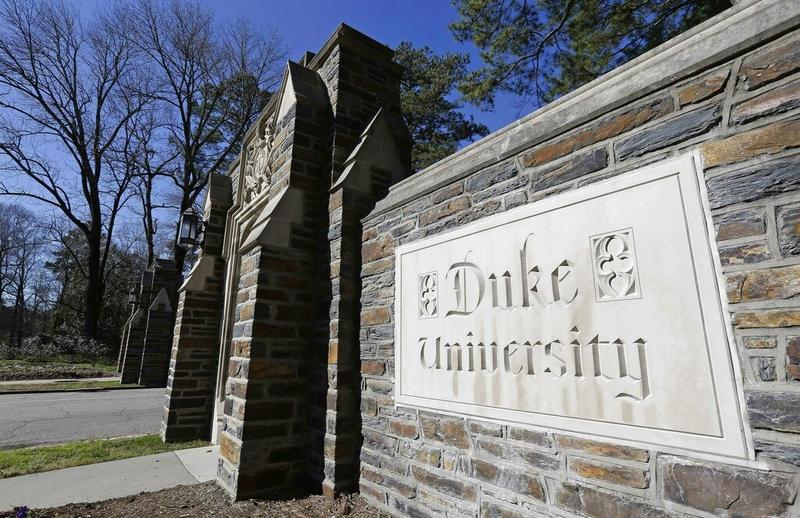Mind your language, professors
By Liang Chenglu | China Daily | Updated: 2019-02-02 07:14

Duke University used to be a dream school for many Chinese students. Not anymore, after Megan Neely, an assistant professor, sent an email to all first-and second-year biostatistics graduate students recently telling them to "commit to using English 100 percent of the time".
In the email, Neely, who resigned as director of graduate studies in the biostatistics department, said that two faculty members had complained to her about two students "speaking Chinese… very loudly" in the student lounge and study areas. "Both faculty members … wanted to write down the names so they could remember them if the students ever interviewed for an internship or asked to work with them for a master's project," she continued.
If the implication wasn't clear enough, Neely spelled it out in the next paragraph: "To international students, PLEASE PLEASE PLEASE keep these unintended consequences in mind when you choose to speak in Chinese in the building… That being said, I encourage you to commit to using English 100 percent of the time when you are in Hock or any other professional setting."
If this is not a threat that students speaking Chinese would not be considered for internship or research projects, what is?
True, Neely has resigned as director of graduate studies, but disappointingly the North Carolina university has not identified the other two faculty members involved in the incident.
If the two international students were talking in their mother tongue, what was "so impolite" about them? The two professors could not understand the language so they went up to the then-director of graduate studies to get the names of the two students so as not to recommend or admit them to research projects in the future.
Isn't this racial discrimination?
What are the department's criteria for selecting students for research or internships? These are the questions I hope the three faculty members will answer.
The term "very loudly" used by the two Duke professors is offensive, to say the least, to all those who love their mother tongue. How loud is "very loudly"? I assume "very loudly" is a subjective and discriminating description of those who converse in any other language other than English. As human beings, the professors were wrong for associating the students' behavior with their careers. As academics, they were dishonest for suggesting the two students will never work with them irrespective of their academic performance.
According to Neely, the two professors said they wanted their international students to use the opportunity to practice English. But that does not explain why the Chinese language should not be spoken in the entire building. By communicating with each other in their mother tongue, students from the same country combat homesickness.
Of course, foreign students studying in a country where English is the lingua franca should be encouraged to speak in English. But the students have the freedom to choose which language they want to use in a private conversation. And any attempt to force the students to do otherwise is an infringement upon their individual rights.
Duke is an elite university where its faculty members are supposed to be knowledgeable and sensitive to racial discrimination as its students come from diverse ethnic and social backgrounds. The three professors apparently do not measure up to those standards.
Moreover, after receiving the complaint from her colleagues, Neely abused her position as director of graduate studies by trying to coerce the Chinese students into obeying non-existent, discriminatory rules.
This ugly incident went viral on the internet and social media. But other, more destructive incidents in other US universities could have gone unreported.
On many US campuses, the resentful wall against Asian students, many of whom pay disproportionate amounts as tuition, is akin to the elephant in the room.
Mostly, the wall has nothing to do with language, for Chinese students could not have enrolled in Duke if their English-language skills were not satisfactory. American schools should rethink how to ensure their faculty members and other staff adopt the right attitude and make all the students part of their community.
The author is a freelancer based in Beijing.























